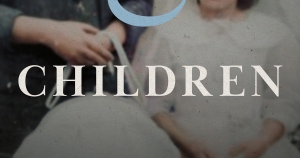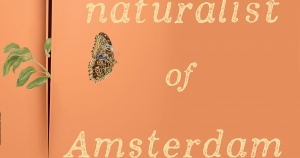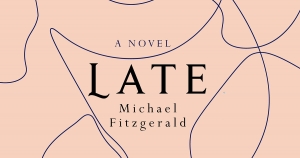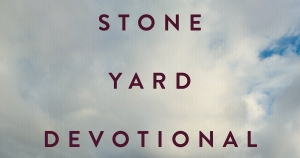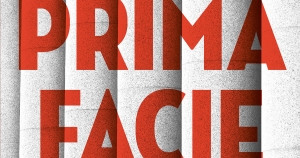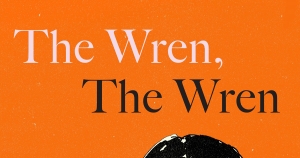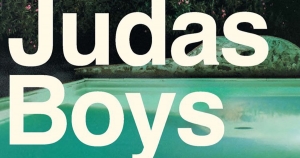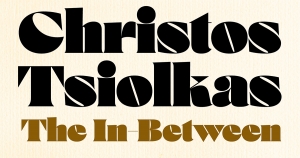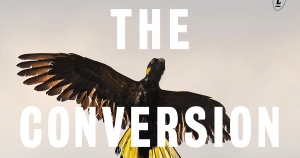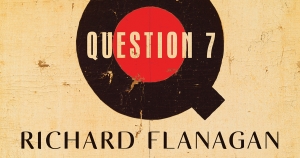Fiction
Naama Grey-Smith reviews 'Women and Children' by Tony Birch
In conversation with the Guardian’s Paul Daley in the final days of 2021, Tony Birch addressed the recurring presence of both strong women and violent men in his work. Citing the Sydney writer Ross Gibson, Birch said he likes to think of the common themes that a writer revisits across his or her body of work as ‘reiterations’. In Birch’s oeuvre, perhaps chief among these reiterations is the impact of male violence on family and community life – from ‘The Butcher’s Wife’ in Shadowboxing (2006) to the Kane men in The White Girl (2019). His latest book, Women and Children, brings this theme into sharp relief.
... (read more)Danielle Clode reviews 'The Naturalist of Amsterdam' by Melissa Ashley
What child has not been fascinated to watch the miraculous metamorphosis of a hungry caterpillar to pupae and then butterfly in a glass jar on the table? This transformation is such an everyday part of our ecological awareness as to be almost child’s play. What was once the cutting-edge technology of scientific observation – the transparent glass isolation chamber, the magnifying lens, and the microscope – has now become household tools for educating children, as if we must recapitulate the lessons of our historical scientific development through our own childhoods.
... (read more)Michael Fitzgerald’s new novel, Late, opens with a camera obscura, a direct reference to Christopher Isherwood’s Goodbye to Berlin (1939). The image is a nifty one – a portrait projected across the Pacific Ocean, as well as across time itself – and it goes some way to signalling the author’s intentions: he wants to create a novel deliberately weighted by the creative works (films, books, art, and sculpture) that have come before and, for his protagonist – who in real life died on 4 August 1962 – those that have come since.
... (read more)Jennifer Mills reviews 'Stone Yard Devotional' by Charlotte Wood
'Arrive finally at about three.’ The opening sentence of Charlotte Wood’s seventh novel does a lot in five simple words, emblematic of her gift for compression. With the direct, truncated prose of a diary entry, we are suddenly on intimate terms with another mind, impatient to begin. The unnamed narrator is a woman alone, returning to the country town where she grew up and where her parents are buried. ‘Your bones are here, beneath my feet,’ she thinks, standing at their graves for the first time in thirty-five years. So begins her reckoning.
... (read more)Suzie Miller’s play Prima Facie is one of Australia’s most celebrated literary exports of recent years. After an award-winning run of performances in Australia, a production helmed by Killing Eve star Jodie Comer triumphed in London’s West End and on Broadway, garnering deserved accolades for Comer as well as a coveted Olivier Award for Best New Play in 2023.
... (read more)Diane Stubbings reviews 'The Wren, The Wren' by Anne Enright
In her essay ‘The Irish Woman Poet’, Eavan Boland (herself considered Ireland’s greatest female poet) noted that ‘The life of the Irish woman – the ordinary lived life – was both invisible and, when it became visible, was considered inappropriate as a theme for Irish poetry.’ The only place within poetry for an Irish woman, history seemed to insist, was as either muse or myth. Any hint of her as a flesh-and-blood creature was effectively erased.
... (read more)Early in Joel Deane’s third novel, the point of view shifts from the first to the third person as the narrator, Patrick ‘Pin’ Pinnock, reflects on a moment in boyhood, standing atop a diving board at night.
... (read more)When the London theatres closed due to plague in the late 1590s, a still-young William Shakespeare composed and published ‘Venus and Adonis’, a poem about unrequited love, lust, and devotion to beauty. Shakespeare evokes a desire to touch, to kiss, to smell, to taste, to share breath. Christos Tsiolkas’s book 7½ (2021), written and published under similar circumstances, embodies some of this Shakespearean spirit, but his conception of beauty extends to a fuller range of sensual experience, accommodating everything that is human and alive – the stench as well as the perfume – while rejecting whatever seeks to diminish beauty and liveliness. It is the work of a writer who is in love with this world, despite its cruelties. The In-Between mirrors and extends that sensibility.
... (read more)Felicity Plunkett reviews 'The Conversion' by Amanda Lohrey
Transformation is one thing. Conversion is another. With its Latin roots con (with or together) and vertere (to turn or bend), conversion is haunted by a sense of coercion, the imposition of one will over another. In Virginia Woolf’s Mrs Dalloway, conversion comes in the form of Clarissa Dalloway’s daughter’s evangelistic tutor, Doris Kilman, the violence of colonialism, and brutish attempts by psychologist Sir William Bradshaw to instil ‘a sense of proportion’ into his vulnerable patients. Sir William gets what he wants. He ‘shuts people up’ under the auspices of ‘the twin goddesses of conversion and proportion’. Converting, for Woolf, means ‘to override opposition’.
... (read more)Catriona Menzies-Pike reviews 'Question 7' by Richard Flanagan
When Richard Flanagan left school, he tells us early in Question 7, he worked as a chainman or surveyor’s labourer, ‘a job centuries old set to vanish only a few years later with the advent of digital technology’. Chainmen would have followed the surveyors who mapped Van Diemen’s Land and the rest of the British Empire; their task was to ‘drag the twenty-two-yard chain with its hundred links with which the world was measured’. The clanking surveyor’s measure evokes convict chains, and it demonstrates one of the principles at the heart of this book: that the past lives and redounds in the present. The chainman is a descendant of convicts, and he insists that ‘there was no straight line of history. There was only a circle.’
... (read more)
